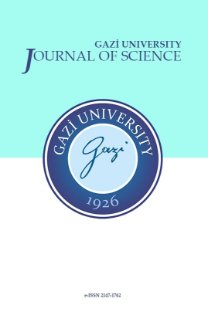A Comparison Study of Higher Education Graduates of Germany and Turkey
A Comparison Study of Higher Education Graduates of Germany and Turkey
Higher education, Engineering, Graduates Education level, Field of education,
___
- [1] Http://uis.unesco.org/sites/default/files/documents/international-standard-classification-of-education-isced-2011-en.pdf. Access date: 30.03.2021.
- [2] Kaya, Y.K., “İnsan yetiştirme düzenimiz”, Ankara, Bilim Yayınları, (1989).
- [3] Boni, A., Walker, M., “Universities and Global Human Development: Theoretical and empirical insights for social change”, London, Routledge, (2016).
- [4] Oketch, M., McCowan, T., Schendel, R., “The Impact of Tertiary education on development: A rigorous literature review”, London, DFID, (2014).
- [5] Güven, A., Tunç, B., “Lisansüstü öğretim öğrencilerinin akademik sorunları (Ankara Üniversitesi Eğitim Bilimleri Enstitüsü örneği)”, Milli Eğitim, 35(173): 157-172, (2007).
- [6] Chankseliani, M., Qoraboyev, I., Gimranova, D., “Higher education contributing to local, national, and global development: new empirical and conceptual insights”, Higher Education, 81(1): 109-127, (2021).
- [7] Çakar, Ö., “Fen Bilimleri Alanında Bilim Adamı Yetiştirme: Lisansüstü Eğitim”, TÜBA Bilimsel Toplantı Serileri: 7, 65–75, (1997).
- [8] Alhas, A., “Lisansüstü eğitim yapmakta olan Milli Eğitim Bakanlığı öğretmenlerinin lisansüstü eğitime bakış açıları (Ankara ili örneği)”, Basılmamış Yüksek Lisans Tezi, Gazi Üniversitesi, Eğitim Bilimleri Enstitüsü, Ankara, (2006).
- [9] Bülbül, T., “Ankara Üniversitesi Eğitim Bilimleri Fakültesinde görev yapan öğretim üyelerinin lisansüstü öğretime öğrenci seçme sürecine ilişkin görüşleri”, Ankara University Journal of Faculty of Educational Sciences (JFES), 36(1): 167-174, (2003).
- [10] https://appsso.eurostat.ec.europa.eu/nui/show.do?dataset=educ_uoe_grad02. Access date: 30.03.2021
- [11] Https://www.aps.org/programs/education/statistics/fraction-phd.cfm. Access date: 12.12.2021
- Yayın Aralığı: 4
- Başlangıç: 1988
- Yayıncı: Gazi Üniversitesi, Fen Bilimleri Enstitüsü
Akshaykumar NAREGALKAR, Subbulekshmi D
The Determination of Presence of Listeria monocytogenes in Ground Meat Sold in Istanbul
Arda Alara ULUDAĞ, Elif Özlem ARSLAN AYDOĞDU, Ayten KİMİRAN
Examination of Fiber Reinforced Composite Materials
Berkay KARACOR, Mustafa ÖZCANLI
Digital Transformation: Digital Maturity Model for Turkish Businesses
Deniz MERDİN, Filiz ERSÖZ, Harun TAŞKIN
Spirituality of Light in the Mosque by Exploring Iranian-Islamic Architectural Styles
Mahya GHOUCHANİ, Mohammad TAJİ, Amir Hassan YAGHOUBİ ROSHAN
Masoud MOSAYEBİ, Pouya MALLAHİ KOLAHİ
Farzaneh BAGHERİ, Hasan KOMURCUGİL
Gas Turbine Performance Monitoring and Operation Challenges: A Review
